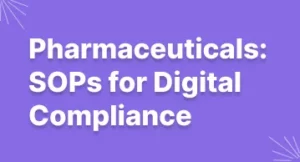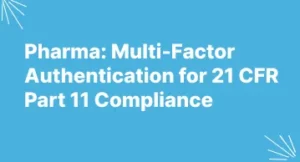What is ISO/TS 16949 and IATF 16949?
ISO/TS 16949 and IATF 16949 are two important standards recognized globally for automotive-specific Quality Management Systems (QMS). The development of these standards was done under the umbrella of the International Automotive Task Force (IATF) with the purpose of increasing quality throughout the automotive industry.
ISO/TS 16949 is a technical specification which replaces and combines the previous quality systems approaches. The standard is based on the ISO 9001 Quality Management System and follows the structure and general guidelines set out by ISO itself. It builds on the existing approach from both the customer’s and the organization’s point of view, expanding it to meet the specific requirements of the automotive industry.
IATF 16949 is the successor to ISO/TS 16949 and was developed by the IATF to address the changing needs of the automotive industry. The new standard replaces all prior versions of ISO/TS 16949 and is fully compatible with ISO 9001. It includes additional QMS elements such as enhanced problem solving techniques, product safety, and environmental policies.
Both ISO/TS 16949 and IATF 16949 standards are critical for automotive companies who need to meet the highest quality standards and provide safe, reliable products for customers. Adopting these two standards can lead to cost savings, improved safety and reliability, and increased customer satisfaction.
Breakdown of ISO/TS 16949 and IATF 16949 Requirements
ISO/TS 16949 is an international quality management standard that focuses on the development and production of automotive-related products. It was developed by the International Automotive Task Force (IATF) in 2002 to promote improved performance, better customer satisfaction, and increased safety. The standard sets out the requirements for organizations to follow in order to achieve customer satisfaction, including areas such as root cause analysis, improvement of process capability, and customer feedback.
On the other hand, IATF 16949 is a more comprehensive standard than its predecessor ISO/TS 16949. It emphasizes the need for quality management systems, as well as the importance of meeting customer requirements and international standards. It includes specific requirements for suppliers, such as risk assessment, warranty management, preventive actions, and customer complaint handling. Additionally, it requires an effective corrective action system to eliminate any nonconformities that may come up.
In order to be certified for IATF 16949, an organization needs to demonstrate that their processes meet the stringent requirements of the standard. This includes having proper documentation in place, as well as a comprehensive quality management system. By following the requirements of both of these standards, companies ensure that their products and services meet the highest quality standards.
Benefits of Adhering to ISO/TS 16949 and IATF 16949
ISO/TS 16949 and IATF 16949 have many benefits for companies that choose to comply. First, they provide a standard framework for quality management, ensuring that each step of the process meets standards of excellence. This helps to reduce costs associated with defective products and the production of excess inventory. Companies using these standards will also benefit from increased customer satisfaction, as they demonstrate their commitment to quality, reliability, and safety.
Compliance with ISO/TS 16949 and IATF 16949 also helps businesses to stand out in the competitive marketplace. Companies that can show that they are meeting and exceeding quality standards are more attractive to potential customers. In addition, it is often a requirement for businesses to be certified or accredited by these standards in order to bid on contracts or gain access to certain markets.
Finally, implementing these standards can help increase workers’ morale, as they know they are working in a safe and reliable environment. It can also improve communication between departments, as employees understand their roles and responsibilities better in a standardized system.
Examples of Noncompliance
Adherence to ISO/TS 16949 and IATF 16949 is a must for any company that wishes to produce quality automotive parts. Unfortunately for some, their failure to meet these standards led to disastrous consequences. One example was the case of Onyx Industrial Solutions, who were audited in 2017 and found noncompliant with IATF 16949.
Onyx had failed to establish a comprehensive system for controlling and tracking customer feedback, as well as to properly address nonconforming parts. This resulted in a number of quality issues for some of its clients and ultimately led to the revocation of its certification.
Another example is that of ZF Steering Gear India Pvt Ltd (ZFSGIPL). An audit conducted in 2018 revealed numerous discrepancies, including but not limited to improper recording of customer complaints, absence of corrective action plans, and inadequate control over calibration records. The result was an immediate suspension of ZFSGIPL’s certification.
These cases are indicative of what can happen if companies choose to ignore IATF 16949 and ISO/TS 16949 standards. Companies must ensure that they are compliant with these standards in order to avoid such disastrous effects.
Closing – The importance of compliance with the standards
Compliance with ISO/TS 16949 and IATF 16949 is essential for businesses that are looking to prove their quality management system. For those companies that choose not to comply, they face potential risks such as not being able to win orders, losing customers, and not being deemed reputable amongst quality assurance practitioners. Compliance will also show that the company takes quality seriously and demonstrates a commitment to continuous improvement.
Adherence to these standards is not only beneficial for the company, but for its customers too. ISO/TS 16949 and IATF 16949 are both customer-focused, assuring the customer of a satisfactory product or service. A company compliant with these standards also provides customers with an assurance that processes have been consistently checked, monitored, and improved.
In summary, compliance with ISO/TS 16949 and IATF 16949 is essential for any company that wants to be successful in their industry. Every business should strive to meet the quality standards set by these organizations and regularly review and improve upon their own processes. Not doing this may lead to costly, reputation-damaging pitfalls.
ISO/TS 16949 and IATF 16949 are two of the leading approaches towards Quality Management Systems, used by global automotive manufacturers and suppliers. These standards provide a framework for companies to create consistent, reliable services and products. Adhering to ISO/TS 16949 and IATF 16949 is critical to ensuring customer satisfaction, improving process efficiency, and maintaining a competitive advantage.
The ISO/TS 16949 standard is an international quality management system that specifies requirements for developing and providing quality-related services in the automotive industry. It is based on the ISO 9001 international standard and integrates additional requirements that apply to automotive production and service parts. IATF 16949 is a stricter version of this standard, developed by the International Automotive Task Force to address customer-specific requirements. The standard outlines requirements in areas such as product design, manufacture, development, and service.
Adhering to these standards can bring many benefits to businesses across the automotive industry, including improved customer satisfaction and loyalty, reduced cycle times, increased profitability, and better risk management. Additionally, it helps to ensure the safety and reliability of automotive products and parts.
Ignoring or failing to comply with either of these standards can lead to costly mistakes and a loss of trust from customers. Companies can face financial and other penalties such as impaired market reputation, and even losing contracts from customers if they are found to be in violation.
In conclusion, it is evident that ISO/TS 16949 and IATF 16949 are standards to be taken seriously. Adhering to these standards is essential to achieving a high-level of customer satisfaction and improved organizational performance within the automotive industry. Companies must take responsibility for meeting the criteria outlined in the standards to ensure their success.
Conclusion
Adhering to ISO/TS 16949 and IATF 16949 standards is essential for businesses of all sizes. It ensures the products and services provided are of the highest quality, reducing risk and improving customer satisfaction. By prioritizing compliance with these standards, organizations can stand out from the competition, remain competitive, and function safely and effectively. Thus, it is important to make sure that your business meets the requirements laid out in the standards.
What is ISO/TS 16949 and IATF 16949?
1. What is ISO/TS 16949?
ISO/TS 16949 is an automotive-specific version of the international ISO 9001 Quality Management System standard, designed to ensure the highest quality automotive parts are consistently produced for customers.
2. Who should be certified to ISO/TS 16949?
Any business that manufactures and supplies automotive components should hold this certification.
3. What is IATF 16949?
IATF 16949 is the new name of ISO/TS 16949 after it was officially adopted by the International Automotive Task Force (IATF) in October 2016.
4. What are the key benefits of IATF 16949 certification?
Benefits include greater supply chain control, increased customer satisfaction, improved process control, improved product safety, and compatibility across global automotive industry standards.
5. What does the certification process involve?
The process involves a gap analysis and onboarding to the IATF 16949 standard, as well as training for all employees. After the certification process is successfully completed, organisations are monitored regularly to ensure continuous compliance.
6. Who performs IATF 16949 audits?
Audits are conducted by third-party auditors who are accredited by international accreditation bodies, such as UKAS.
7. How much does IATF 16949 certification cost?
The exact costs of IATF 16949 certification will vary from organisation to organisation depending on its size and scope.





